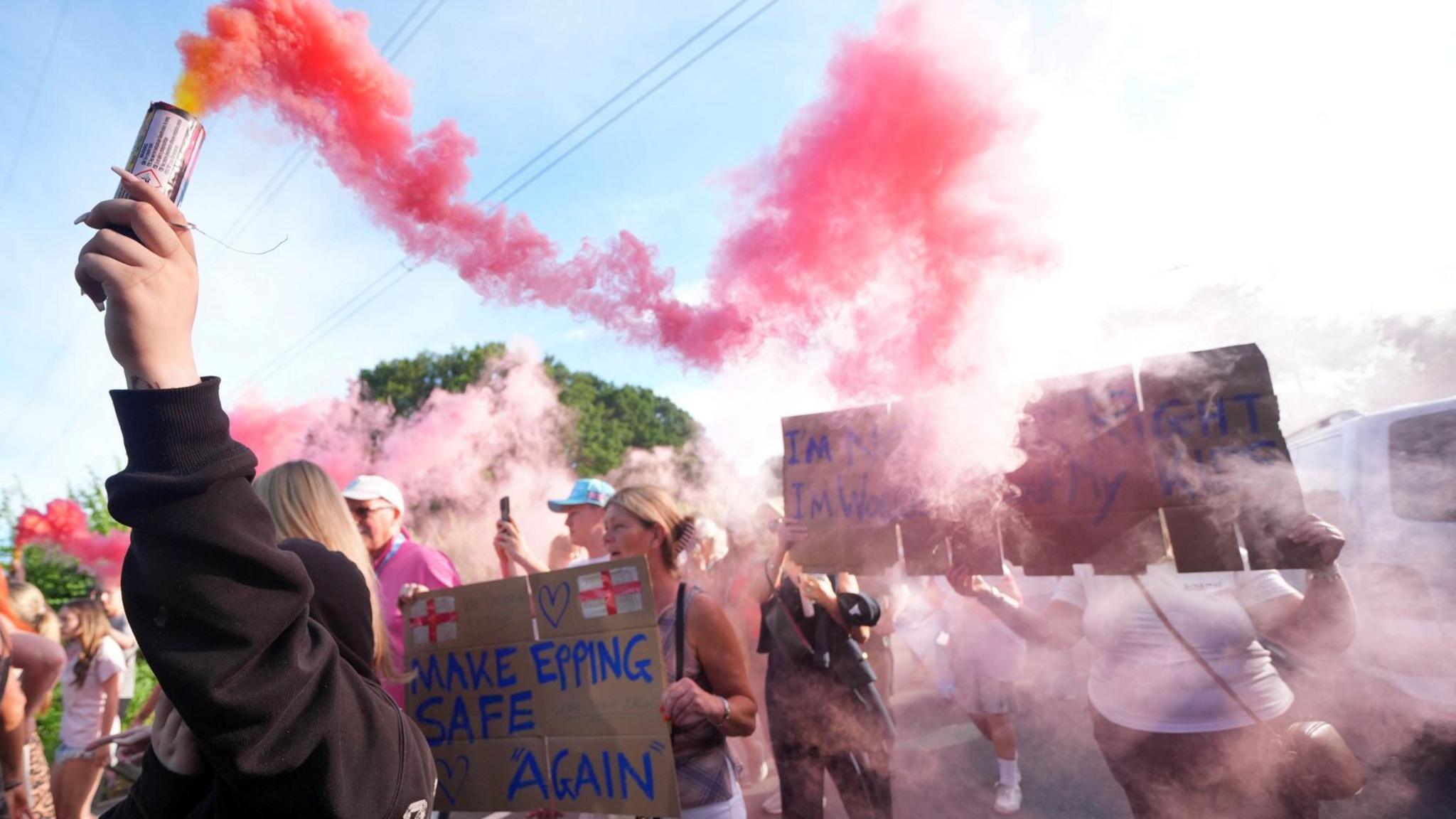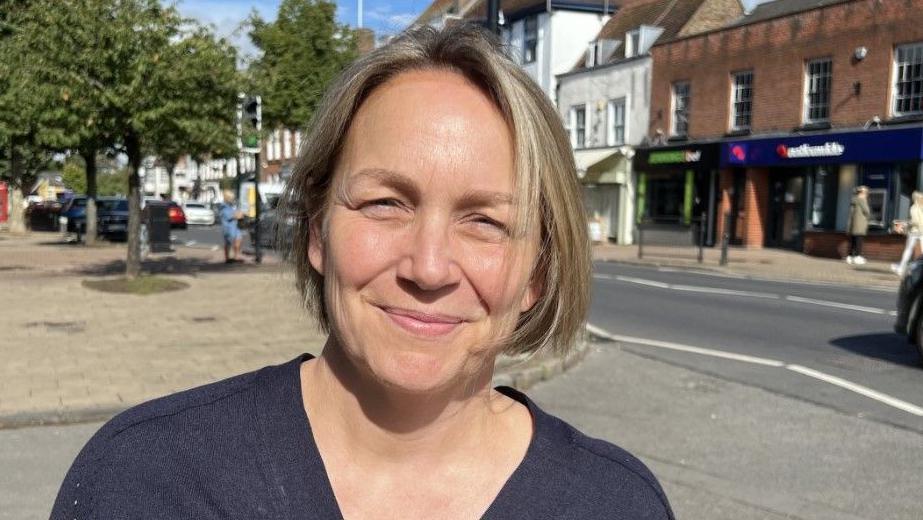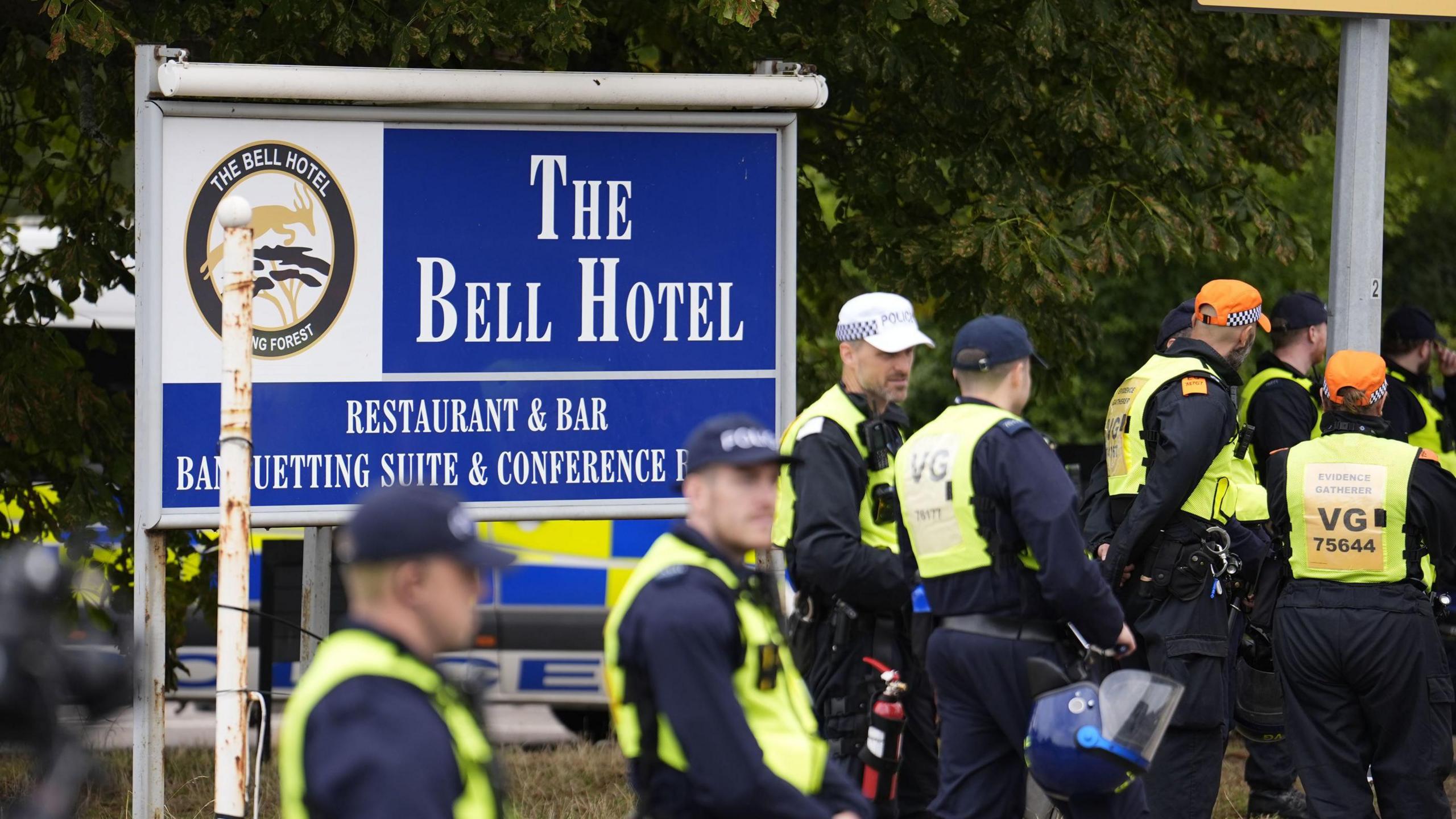Epping divided by asylum hotel row, says advocate

Protests and counter-demonstrations were staged outside The Bell Hotel in Epping during the summer
- Published
A town at the epicentre of anti-immigration protests has had relationships ripped apart by tensions over a hotel housing migrants, a community group co-founder said.
Demonstrations were staged outside The Bell Hotel in Epping, Essex, in the summer after the arrest of a man living there who was later jailed for sexual offences.
Kerry Gilroy, who founded a local community group, said the use of the hotel had been "very divisive" and "caused real rifts between people".
Holly Whitbread, a Conservative on Epping Forest District Council, said many people had legitimate concerns and been upset by the situation.
The local authority lost a landmark legal battle at the High Court to remove asylum seekers from The Bell Hotel on Tuesday.
It followed many protests and counter-demonstrations held outside the building since July, of which some turned violent.

Kerry Gilroy runs a Facebook group called Epping for Everyone
Ms Gilroy, co-founder of community group Epping for Everyone, said there had been an "intimidating atmosphere" in the town.
"The words that people use around this are divisive, dehumanising language that cuts deep and creates division and a horrible atmosphere," she told presenter Sonia Watson on BBC Essex.
"People who previously thought they knew each other and were on the same page about things suddenly find they actually feel very differently.
"It's brought a lot of tension to the surface that maybe people didn't know was there before," she added.
'People are angry': Behind the wave of asylum hotel protests
- Published9 August
Three men who pushed, punched and kicked police officers during protests outside the hotel were jailed for violent disorder in October.
During sentencing, the court heard policing the protests had cost £1.54m.
Ms Gilroy added: "The nature of these protests is intimidating and it is unpleasant, so I really hope we don't go back to more of those."
Demonstrations began after Hadush Kebatu, an Ethiopian national who arrived in the UK on a small boat and went on to commit sex offences while living at The Bell Hotel, was arrested in July.
He was jailed for a year in September, before being mistakenly released from prison, detained again and deported in October.

The government wants to shut all asylum hotels within the next four years
Whitbread told Radio 4's World At One programme: "We've had months of disruption and upset in my town as a result of the use of this hotel."
She said the High Court ruling was "deeply disappointing", adding: "The council have done everything they can through legal means, democratic means and diplomatic means to try and get this all-male asylum hotel closed."
Jaymey McIvor, a Reform UK councillor on Epping Forest District Council, said people would continue to peacefully protest until the hotel was closed.
Jon Whitehouse, the leader of the council's Liberal Democrats, said the authority must take legal advice on what its next steps would be.
A Home Office spokesman said Tuesday's judgement allowed it to continue its work to close every asylum hotel in an "orderly, planned and sustained programme".
Get in touch
Do you have a story suggestion for Essex?
Follow Essex news on BBC Sounds, Facebook, external, Instagram, external and X, external.
Related topics
- Published1 day ago

- Published23 September

- Published9 August
